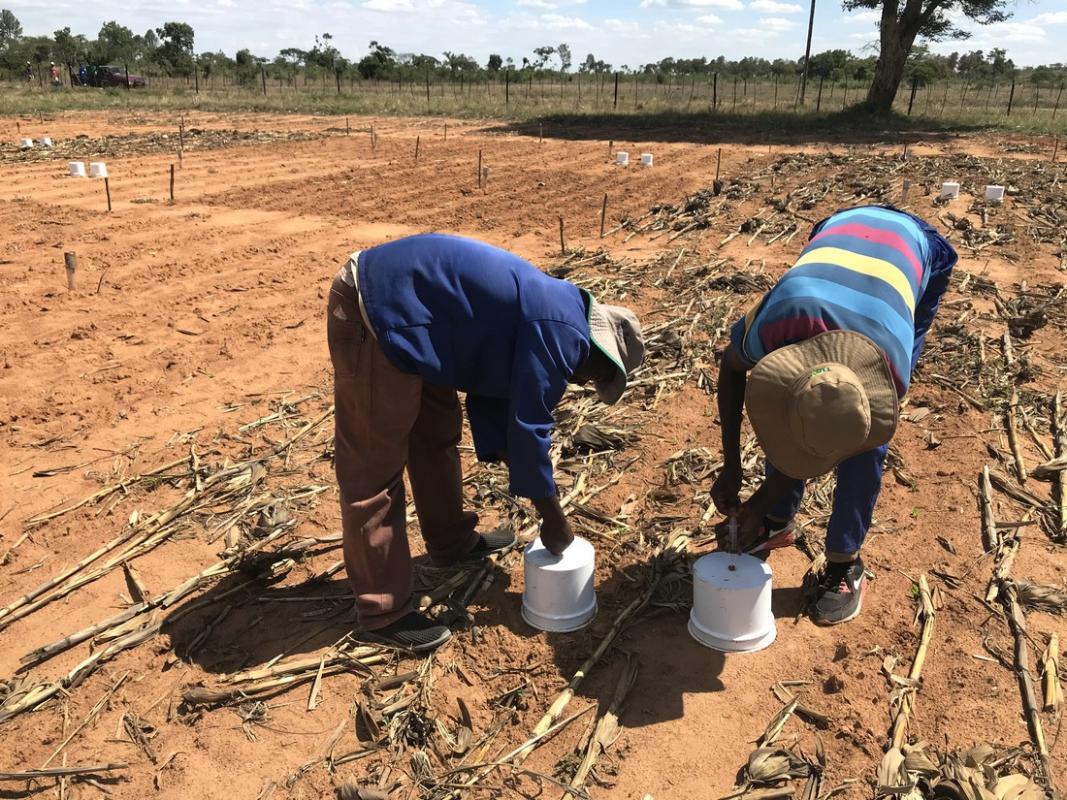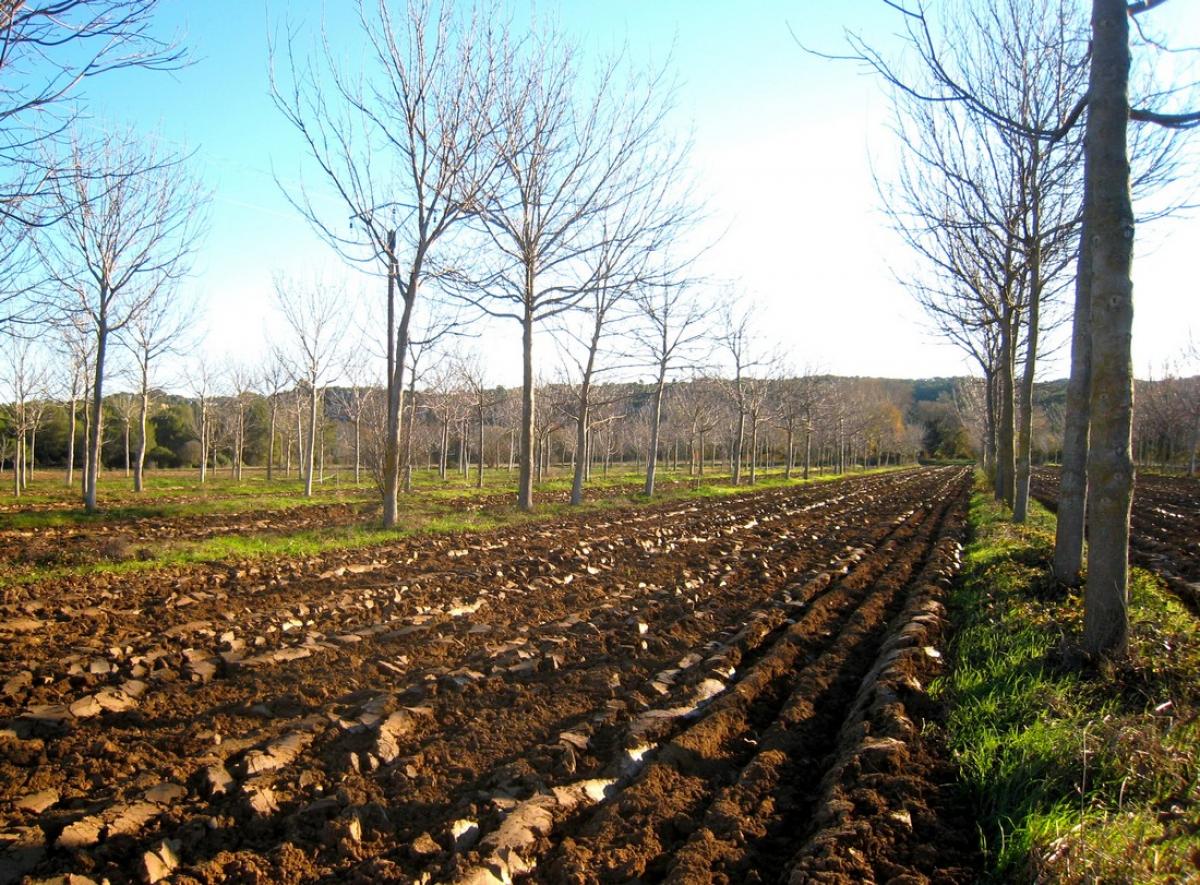Results & impact 28 October 2025
- Home
- CIRAD news
- News
- Climate | Nitrous oxide and agricultural soils
Climate | The need to manage nitrous oxide in agricultural soils

Agroforestry, reduced tillage, intercrops, organic ameliorators, and so on... Various agricultural practices are known to mitigate climate change by fostering soil organic carbon (SOC) storage. But what if they were not actually as effective as we thought? It turns out that they may in fact increase emissions of nitrous oxide (N2O), a powerful greenhouse gas.
Climate change: CO2 is not the only culprit
It was at a seminar organized by the convergence institute CLAND in late 2018 that a group of scientists first came up with the idea of compiling the available knowledge on N2O emissions associated with SOC-boosting practices. "We must look beyond carbon if we want to optimize the contribution made by soils and agricultural practices to mitigating climate change", says Rémi Cardinael, a soil scientist with CIRAD who co-wrote the article. The scientists involved in the study compiled the available data on SOC and N2O storage/emissions for each technique that fosters SOC storage. The results of the study, which compiled 700 SOC storage and 200 N2O emission measurements, were published recently in the journal Global Change Biology
Biochar applications reduce N2O emissions
According to this initial assessment, most of the practices considered do have climate change benefits. However, their potential is sometimes overestimated, as for instance with reduced tillage or no-till systems, in which N2O emissions may offset C storage. "This study compiled data at plot level", Rémi Cardinael points out. "Stopping tillage, which consumes large amounts of fuel, probably still has climate change benefits if the whole system is taken into account." The benefits of agroforestry, organic ameliorators and intercrops, on the other hand, are clearer: N2O emissions expressed in CO2 equivalents are negative in relation to SOC storage. Biochar applications even reduce N2O emissions while boosting SOC storage.
Including nitrogen management in climate goals
"This work demonstrated the very wide range of processes at play and the many uncertainties that remain", Rémi Cardinael says. "Managing both nitrogen and carbon levels in agricultural soils is the only way of achieving climate change goals."
These general, sweeping conclusions must be adapted to the local context: climate, soil type, species grown, etc. Numerous data have yet to be gathered in different soil and climate conditions, particularly in tropical zones, starting with N2O emissions. There are still many technical constraints linked to measuring those emissions, notably because they are intermittent.
Albedo may also complicate matters
Other factors may also influence the climate change benefits of practices designed to increase SOC, notably changes in albedo. Albedo is the capacity of soils to reflect sunlight, and it varies according to soil type and to management methods (soil tillage, mulch, etc) and plant cover. It has an impact on global temperatures. CIRAD recently co-organized an international workshop on the topic: Albedo & Climate Change Mitigation.
Agriculture accounts for half of total N2O emissions
"The warming power of nitrous oxide is 310 times higher than that of CO2", Rémi Cardinael explains. "And agriculture accounts for more than half of all N2O emissions of manmade origin worldwide, mainly because of fertilization." The agriculture, forestry and other land use (AFOLU) sector as a whole, for its part, is responsible for 81% of N2O emissions of manmade origin (according to a 2019 IPCC report).
Carbon and nitrogen cycles in the soil are inextricably linked. Generally speaking, agricultural practices that modify soil mineral nitrogen content, biological activity, aeration, pH, etc, are also likely to affect N2O emissions.





























